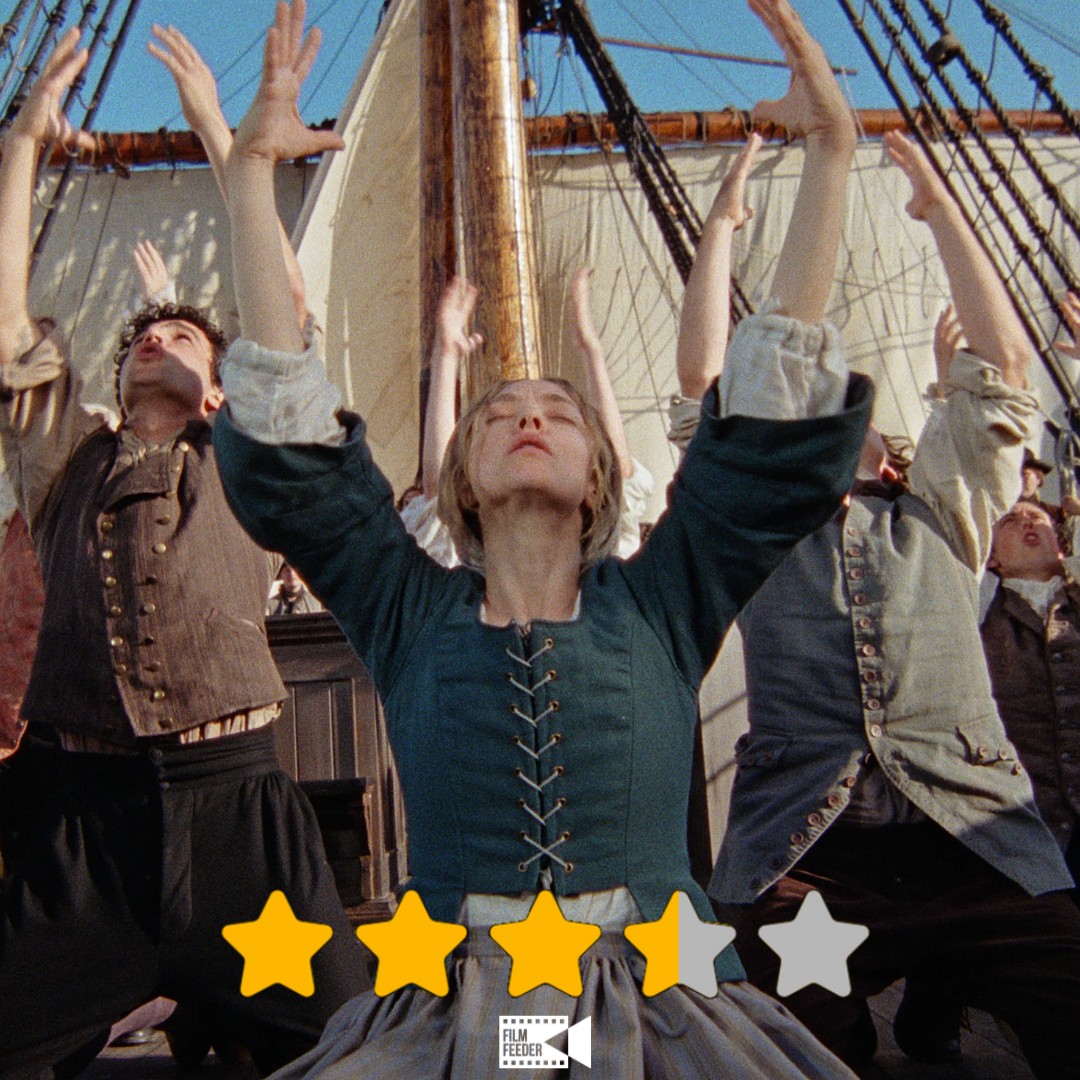
The Trouble with Jessica (2024, dir. Matt Winn)
Certificate: 15
Running Time: 89 mins
UK Distributor: Parkland
UK Release Date: 5 April 2024
WHO’S IN THE TROUBLE WITH JESSICA?
Shirley Henderson, Rufus Sewell, Olivia Williams, Indira Varma, Alan Tudyk, Anne Reid, Sylvester Groth, Jonathan Livingstone, Kwaku Mills, Amber Rose Revah, David Schaal
WHO’S BEHIND THE CAMERA?
Matt Winn (director, writer, composer), James Handel (writer), Sarah Sulick (producer), Matt Cooper (composer), Tristan Oliver (cinematographer), David Freeman (editor)
WHAT’S IT ABOUT?
A dinner party descends into chaos after the arrival of an unexpected guest…
WHAT ARE MY THOUGHTS ON THE TROUBLE WITH JESSICA?
(TW // SUICIDE & MENTIONS OF RAPE)
The trouble with The Trouble with Jessica is that, twenty or so years ago, such a film about the struggles of the upper-middle class would have been widely relatable to the majority of audiences. But nowadays, thanks to an extended period of austerity that has deepened the economic divide even further, it might as well be a wish-fulfilment fantasy for many who are outside of that reasonably well-off bubble.
Sure, writer-director Matt Winn’s darkly comic film is intended as a satire of upper-middle class values, as well as the moral hypocrisies surrounding their supposed goodwill and empathy toward serious issues, but the harsh reality is that the joke will only be understood by the very people it’s setting out to mock, leaving everyone else to deal with a film that, although not without its moments, is more uncomfortable and excruciating than genuinely entertaining.
The film takes place over the course of a single evening, as married couple Sarah (Shirley Henderson) and Tom (Alan Tudyk) welcome their long-time friends Richard (Rufus Sewell) and Beth (Olivia Williams) over for a dinner party at their fancy North London home. Unfortunately, they’ve also brought their other friend, emotionally unstable author Jessica (Indira Varma), along without prior warning, and the dinner very quickly descends into an uncomfortable war of hostility, which becomes even more awkward when Jessica suddenly commits suicide by hanging herself in the garden.
The incident comes at a great shock to the guests, but none more so than Sarah and Tom, who are in dire financial circumstances and are about to sell their house in order to stay afloat, but something like this will undoubtedly scupper the deal, and thus leave them utterly ruined. In a moment of desperation, and after careful persuasion of their other guests, the couple decide to pull off a callous plan: somehow, they will transport Jessica’s corpse back home and make it seem like she killed herself there, instead of in their garden. Of course, that doesn’t come without its own set of complications, most of them focused on sudden visits by nosy neighbours, inept policemen, and even the prospective buyer of the house.
Though it is seemingly farcical and light-hearted on the surface, or at least as light-hearted as can be when it comes to the triggering subject of suicide, The Trouble with Jessica is actually a rather dark-hearted takedown of class values where nobody, not even the corpse that triggers the film’s core situation, gets off easily. This is a film where practically every main speaking character has more than a whiff of self-absorption and self-righteousness about them, often to morally monstrous degrees, such as Rufus Sewell’s Richard who’s made a comfortable living defending rapists in court and proudly boasts that fact to his friends, or Indira Varma’s doomed Jessica who regularly attempts to steer any and all conversation topics toward herself, even falsely declaring that she was once raped.
It’s as though Winn made a film where every character was the deeply insecure person that Carey Mulligan played in Saltburn, who funnily enough met a similar fate to Jessica in this film. “She’ll do anything for attention,” Rosamund Pike declared in Emerald Fennell’s film once that bombshell dropped, and the same can be said about these characters here, who are deeply unsympathetic and eager to do and say anything to retain their increasingly murky moral high ground.
Their collective unlikability is, of course, by Winn’s satirical design through his compressed writing and direction, and the main cast also help to drive home their rotten nature, the core standouts being Shirley Henderson and Rufus Sewell, the latter of whom is having a banner week of top-rate comedic performances, between this and his amusingly pathetic turn as Prince Andrew in Netflix’s Scoop. However, their characters do not have enough engaging elements to still make them interesting to watch, and sometimes they will switch motivations out of pure plot convenience, without any build-up or logical explanation whatsoever. Because of that, as well as the fact that most of their dialogue with one another isn’t so much funny as it is stinging and back-handed at every available opportunity, there are not that many redeeming qualities to these people that we’re spending the entire movie with.
Perhaps viewers who belong in the same tax bracket as these characters will be able to identity more with them and their situation, but that’s kind of why The Trouble with Jessica ultimately doesn’t work. Regardless of whatever class it’s aimed at, a film should be accessible to as many audiences as possible, but by both taking aim at the bourgeoisie and also appealing exclusively toward those very people, it ends up limiting its outreach to where anyone not within that class status can’t laugh along with it as much.
SO, TO SUM UP…
The Trouble with Jessica is a dark-hearted satire of upper-middle class values that limits its intended takedown of bourgeois self-absorption by appealing to the very people it’s intending to mock, though its cast of morally monstrous characters doesn’t make it an especially appealing watch either way.














0 Comments